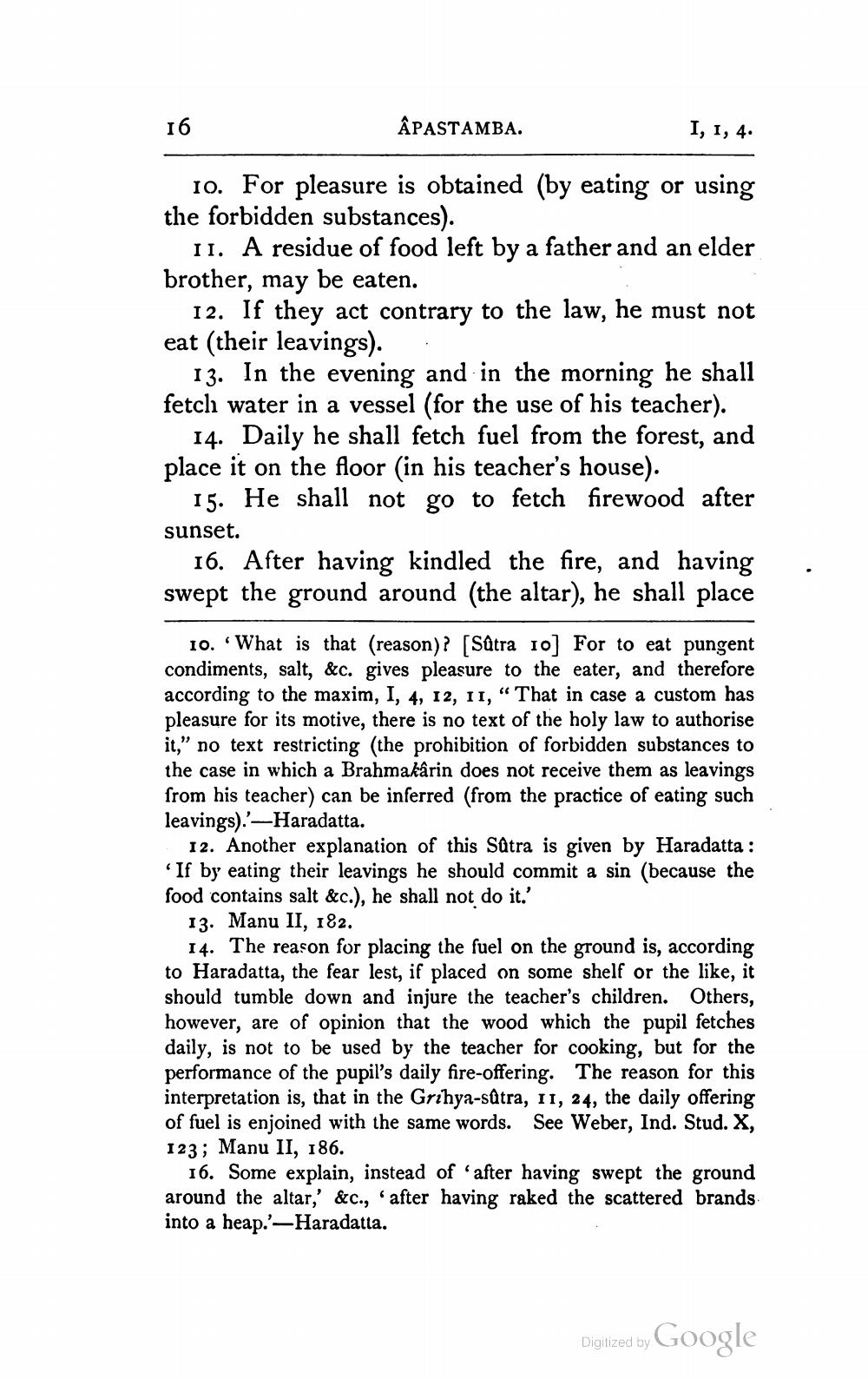________________
16
ÂPASTAMBA.
I, 1, 4.
10. For pleasure is obtained (by eating or using the forbidden substances).
11. A residue of food left by a father and an elder brother, may be eaten.
12. If they act contrary to the law, he must not eat (their leavings).
13. In the evening and in the morning he shall fetch water in a vessel (for the use of his teacher).
14. Daily he shall fetch fuel from the forest, and place it on the floor (in his teacher's house).
15. He shall not go to fetch firewood after sunset.
16. After having kindled the fire, and having swept the ground around (the altar), he shall place
10. What is that reason)? [Satra 10] For to eat pungent condiments, salt, &c. gives pleasure to the eater, and therefore according to the maxim, I, 4, 12, 11, " That in case a custom has pleasure for its motive, there is no text of the holy law to authorise it," no text restricting the prohibition of forbidden substances to the case in which a Brahmakârin does not receive them as leavings from his teacher) can be inferred (from the practice of eating such leavings).'--Haradatta.
12. Another explanation of this Satra is given by Haradatta : If by eating their leavings he should commit a sin (because the food contains salt &c.), he shall not do it.
13. Manu II, 182.
14. The reason for placing the fuel on the ground is, according to Haradatta, the fear lest, if placed on some shelf or the like, it should tumble down and injure the teacher's children. Others, however, are of opinion that the wood which the pupil fetches daily, is not to be used by the teacher for cooking, but for the performance of the pupil's daily fire-offering. The reason for this interpretation is, that in the Grihya-sûtra, 11, 24, the daily offering of fuel is enjoined with the same words. See Weber, Ind. Stud. X, 123; Manu II, 186.
16. Some explain, instead of after having swept the ground around the altar,' &c., after having raked the scattered brands into a heap.'-Haradatta.
Digitized by Google




